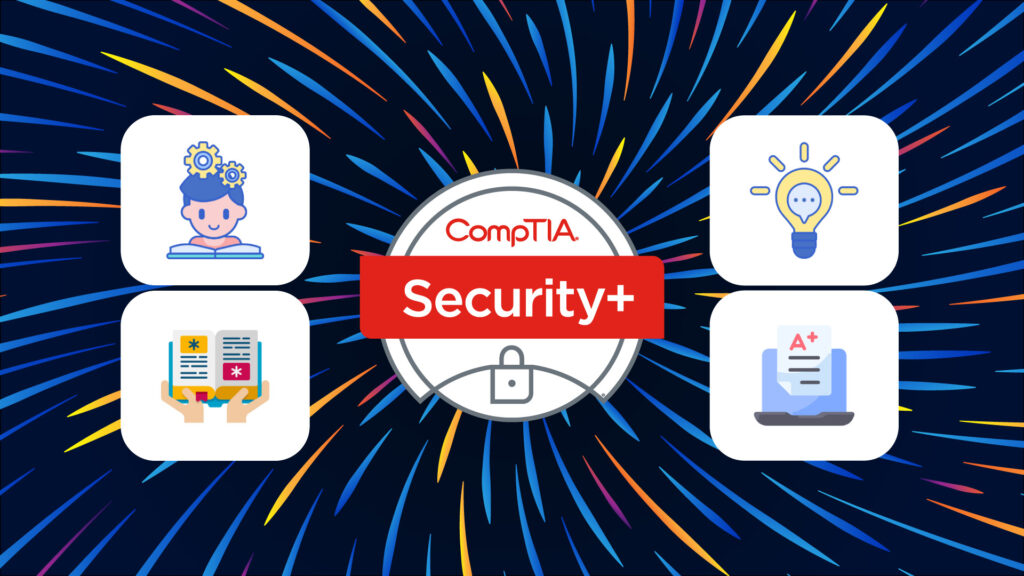Cybersec Role-play In A Hands-on Way

I’m always looking for fun, free new cybersecurity training resources for students who are exploring – or getting started in – the cybersecurity field. Yesterday, I ran across some cool FREE resources online from PBS.org. Never expected that! It’s perfect for “the true beginner”, the “non-technologist”, and the “middle school to high school student”. These resources are a good starting point to inspire a new generation of cyber defenders.
For those of you “mature” readers [like myself, hahaha]…I know Public Broadcasting Service (PBS) for bringing us shows like Sesame Street and Mr. Rogers’ Neighborhood. Like I said…I’m “mature”…and this mature mom was really surprised to find them providing free educational cybersecurity resources. It’s nice to see them changing with the times!

For the record, PBS didn’t create the content. They teamed up with NOVA, who teamed up with cybersecurity experts to create it. So, NOVA gets the credit for creating this fun Cybersecurity Lab Game that allows players to discover how to keep their digital lives safe, while they develop an understanding of cyber threats and defenses. Players advance by using computer coding, logical reasoning, critical thinking, and vulnerability detection to solve various problems. These are some of the key skills needed to work in cybersecurity.
Multimedia Resources
NOVA Labs created some 3-minute videos that do a great job of introducing cybersecurity concepts in an easy-to-understand way to help anyone understand foundational cybersec concepts.
- Cybersecurity 101: The Internet is fundamentally insecure, but there are simple things you can do to protect yourself and your information.
- Cyber Codes: Do you think email, texting or web browsing is secure? Think again! This short video teaches just how trustworthy online communication actually is and how encryption can protect your privacy.
- The Secret Lives of Hackers: Hackers may not be who we think they are. You might be a hacker and not even know it. Truth! Learn what hacking means and why hackers hack.
- A Cyber Privacy Parable: Learn how a seemingly innocent piece of information threatens to ruin someone’s life when it falls into the wrong hands online.
- Interactive Cyber Quiz: After watching the videos, you can take a short quiz to test your knowledge
Get Your Game On!
The Cybersecurity Lab is a game designed to teach people how to keep their digital lives safe, spot cyber scams, learn the basics of coding, and defend against cyber attacks.
- You assume the role of the chief technology officer of a start-up social network company being targeted by cyber attacks.
- You must complete challenges to strengthen their cyber defenses and thwart their attackers.
- There are four major gameplay components of the Lab:
- Coding Challenge introduces you to “very basic” coding concepts by having you program a robot to navigate a maze using drag-and-drop commands.
- Password-Cracking Challenge gamifies password-related security concepts. You learn about password vulnerabilities, how they get hacked and how to make them stronger.
- Social Engineering Challenge shows you two similar emails or websites, and you identify the differences between them and decide which one is a scam. You also review phone calls to decide if you can trust the caller or not.
- Network Attacks Challenge has you plan to buy resources to defend yourself against a series of cyber attacks. The better that players do in the three challenges, the more resources they’ll have to buy defenses.
Learning Objectives of the Lab?
The full lab takes about 1-hour to complete. It was created for “true beginners”. That said, sometimes a true beginner can be 40+ years old [speaking from experience here]. Once finished with short, interactive learning experience, you will be able to…
- Explain computer science terminology related to coding, password protection, social engineering, and network security
- Describe how encryption works to protect privacy
- Describe recent network security breaches and how companies defend against them
- Explain why the term “hacker” is extremely flexible and the variety of roles that hackers play
- Analyze reports of unfolding security breaches and apply their understanding of security networks to them
- Navigate a robot through a maze using Blockly code in the Coding Challenge
- Use analytical reading skills to distinguish among phishing attempts, fraudulent websites, and phone scammers in the Social Engineering Challenge
- Use logical reasoning to create strong passwords in the Password-Cracking Challenge
About the Cybersecurity Lab
In this Lab, you’ll take cybersecurity into your own hands and defend a company against cyber attacks. Your goal is to strengthen your cyber defenses and thwart the attackers by completing a series of cybersecurity challenges. You’ll crack passwords, craft code, and defeat malicious hackers. And the best part… NO PRIOR EXPERIENCE IS REQUIRED in cybersecurity or coding to play!
What’s the situation?
Whenever we go online—to shop, chat with our friends, or do anything else—we put ourselves at risk of cybercrime. Computer viruses can corrupt our files, hackers can steal our data, and criminals can trick us into revealing sensitive information.
In the game, you work for a start-up company being targeted by a series of cyber attacks. Working alongside their friend and colleague your goal is to grow the tiny company into a global empire. To do this, you must complete challenges to strengthen your cyber defenses and fend of attacks.
Here’s a little more info about the four gameplay components!
Coding Challenge
This challenge is an introduction to basic computer programming. Computer code is usually written in text, but in this challenge we’re using Blockly, a visual computer programming editor created by Google that uses drag-and-drop blocks that can be stacked together to create a computer program. Players will program a robot to navigate a maze using Blockly drag-and-drop commands. Yes…it’s an entry-level approach to coding, but the idea is to help beginners, non-programmers and non-technologists understand the concept of coding.

Password-Cracking Challenge
A Password is the most common way people prove their identities online, so using a strong password is essential for keeping digital information safe. In this challenge, players face a series of “password duels” that teach the basics of how attackers might try to crack their passwords and how they can create passwords that are more secure.
Social Engineering Challenge
Scammers try to trick people into handing over sensitive information and downloading computer viruses from emails. In this challenge, players will learn to spot scam emails, websites and phone calls. They will complete the challenge armed with practical tips that will help them avoid becoming victims of social engineering scams.
Network Cyber Battles
By completing the challenges, players will earn resources to buy cyber defenses to protect their companies against a series of cyber attacks that reflect the types of attack that real companies and institutions often fall victim to. Players will learn about a range of cyber attacks and how to effectively defend institutions from them.







Responses